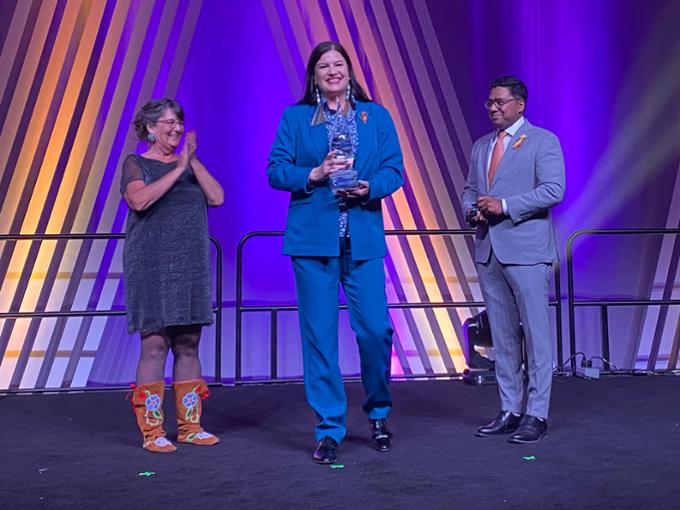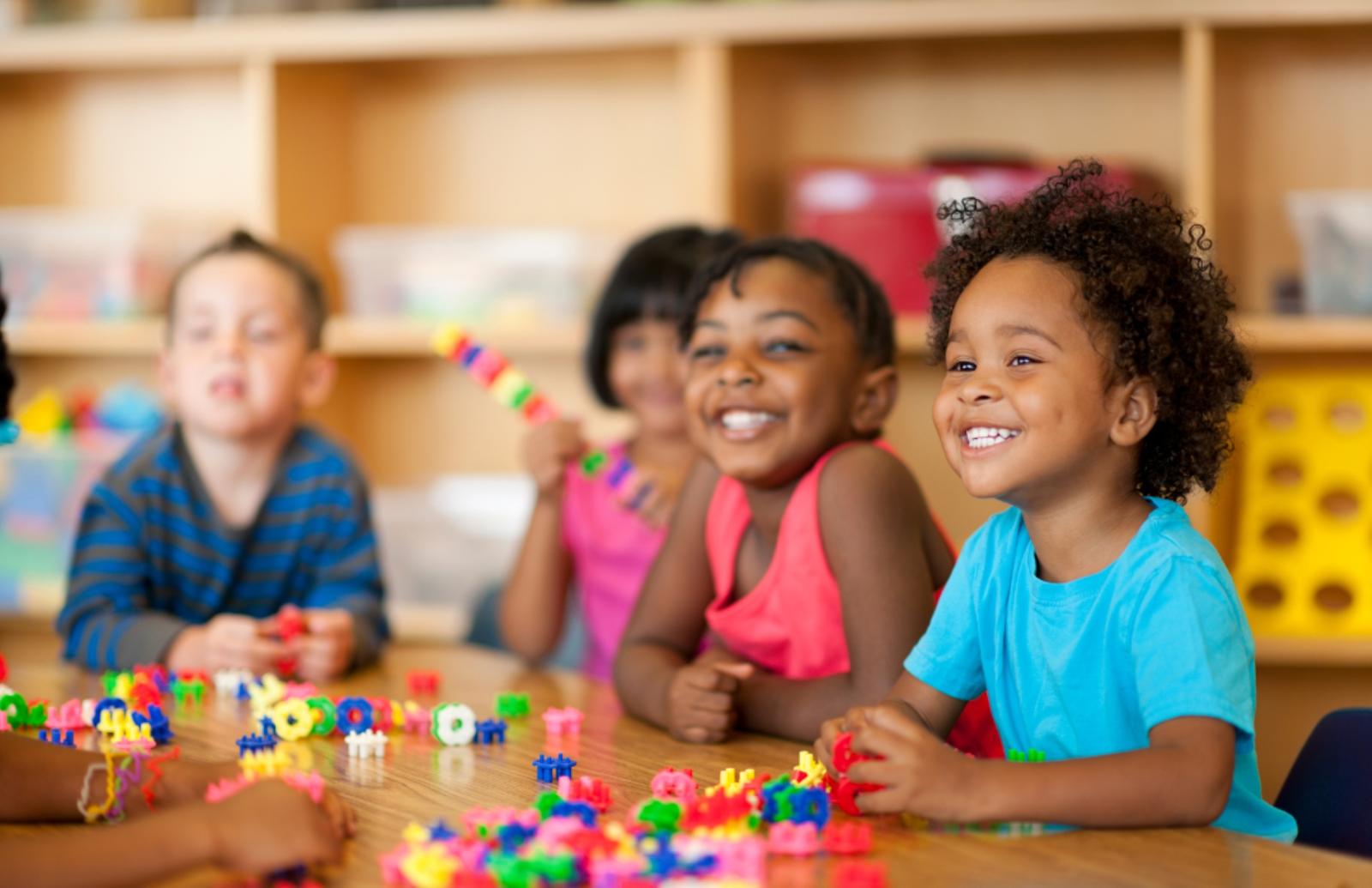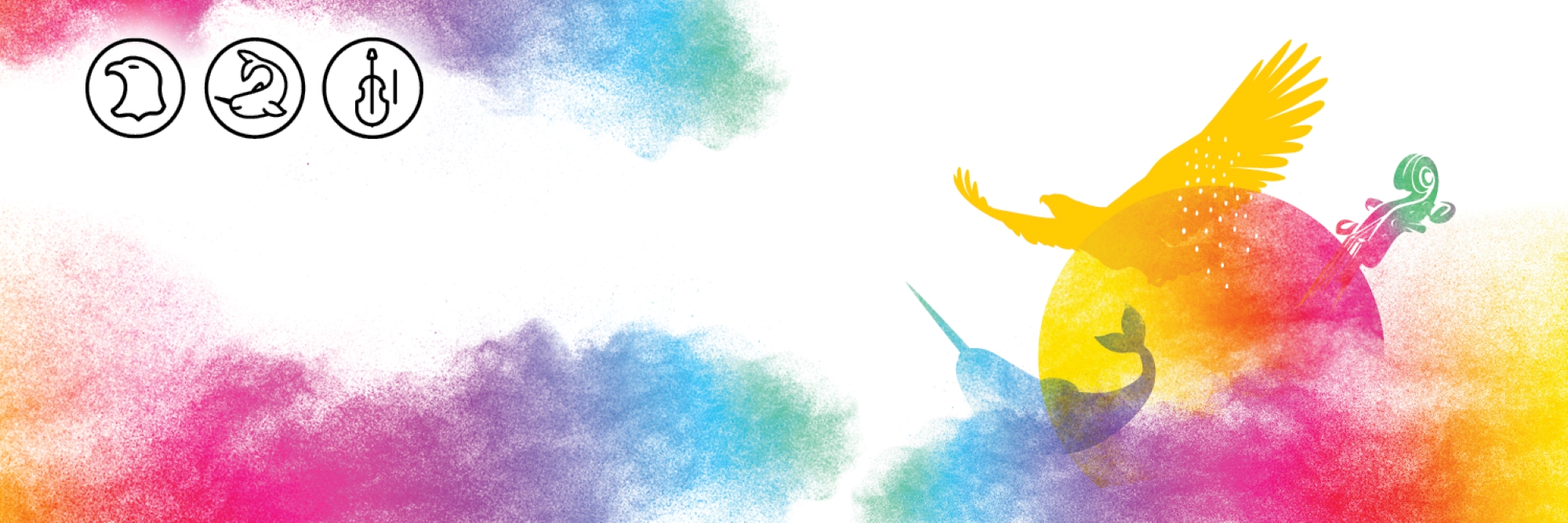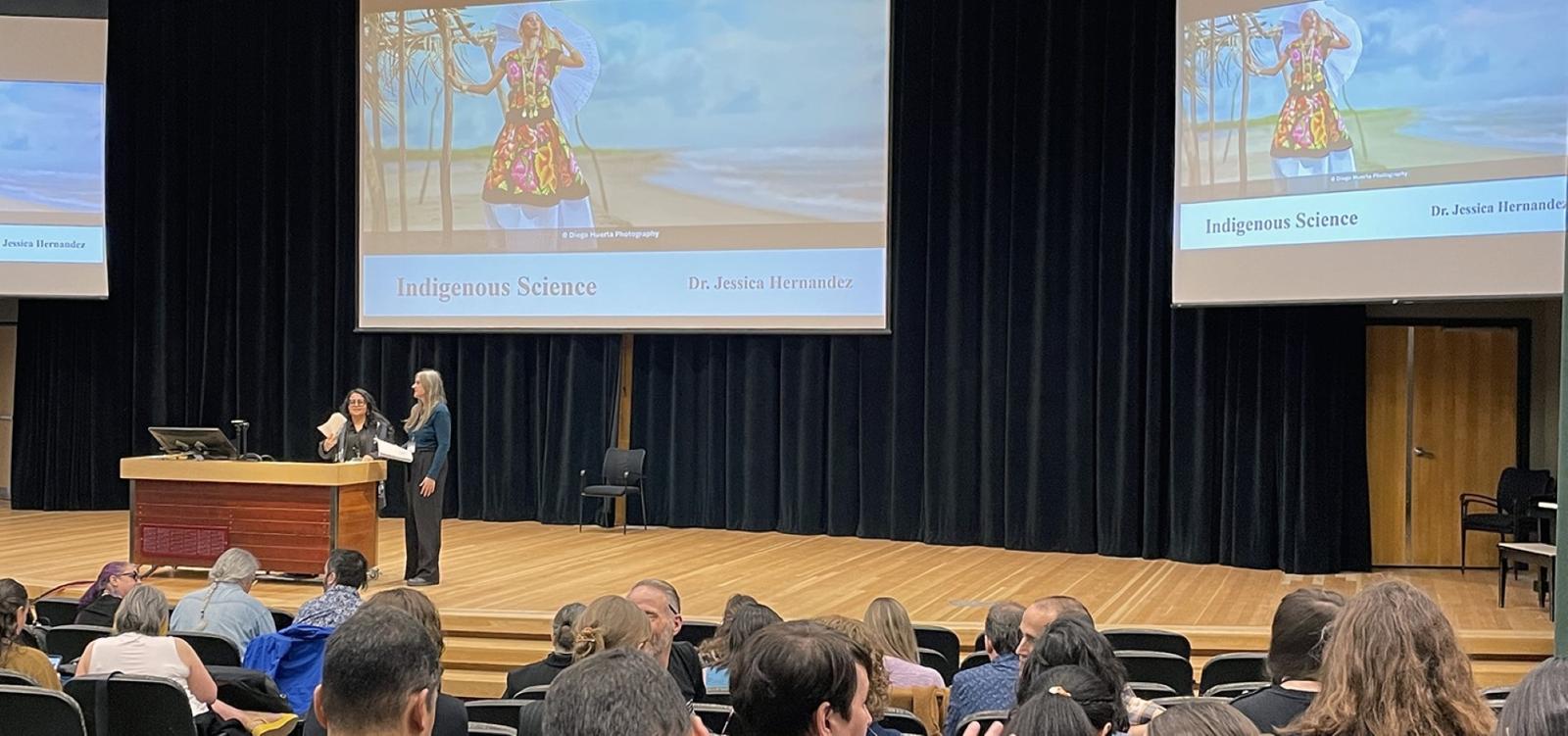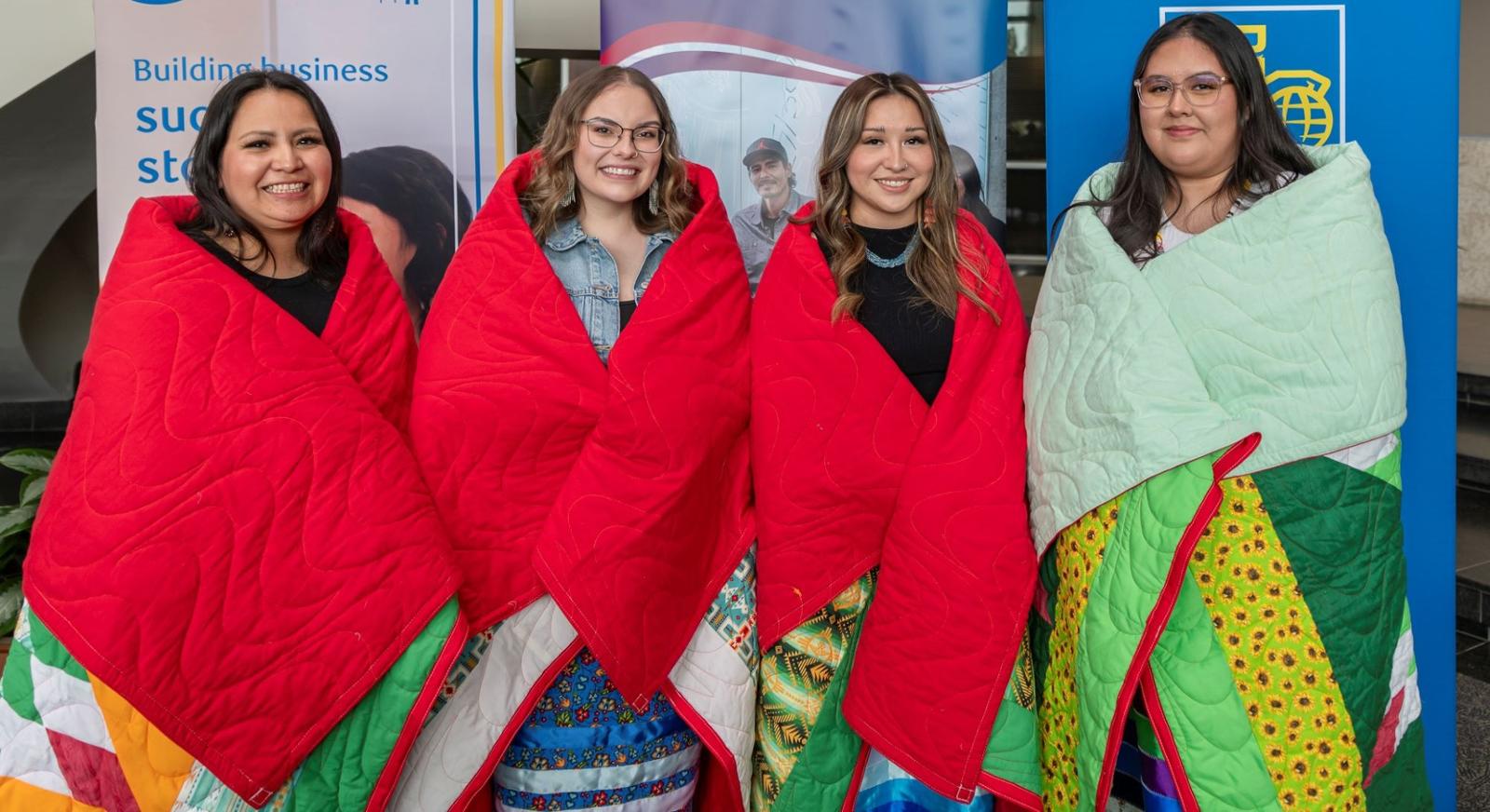In addition to her role as Associate Vice-President (Indigenous Engagement) at the University of Regina, Lori Campbell is a lifelong learner, educator, and mentor. Her dedication to education and inspiring the next generation of Indigenous scholars was recognized at the Indspire Awards on Thursday, May 11 where she received the Education award.
Those before me still invest in me and work really hard to help me be the best I can be, but I have a responsibility to reach back and to ensure that I am making myself available to help students and other Indigenous people to be the best that they can be. Lori Campbell BAdmin '13, Associate Vice-President (Indigenous Engagement)
Indspire is an Indigenous national charity that invests in the education of First Nations, Inuit and Métis people for the long-term benefit of these individuals, their families and communities, and Canada. 2023 marks 30 years of the Indspire Awards honouring First Nations, Inuit, and Métis individuals who demonstrate outstanding achievements.
“It feels pretty surreal, this is the 30th anniversary and when I look at previous recipients I am just in awe of them and their work,” says Campbell. “It’s because of their work that I have the privilege of being able to do the kind of work that I get to do. I am really grateful for that.”
When Campbell looks back at her early years as a student at the U of R, she credits the Indigenous community around her, as well as Saskatchewan Indian Federated College (Now First Nations University of Canada), for helping her to discover who she was as an Indigenous person. She went on to complete two undergraduate degrees (Indigenous Studies and Psychology) and a master’s degree in Adult Education at the U of R, and is currently a PhD candidate in Social Justice Education through the Ontario Institute for Studies in Education of the University of Toronto.
Strong Indigenous Mentors
Campbell credits the mentors and aunties in her life with always being there to listen and cheer her on. She has now embraced being an auntie herself, as well as a mentor and positive influence to students and others in her community. She believes that if you have knowledge that could help someone else, it is your responsibility to share it with others.
“We have this idea of ‘hands forward, hands backward,’” says Campbell. “Those before me still invest in me and work really hard to help me be the best I can be, but I have a responsibility to reach back and to ensure that I am making myself available to help students and other Indigenous people to be the best that they can be.”
In Campbell’s current position, she’s able to bring an Indigenous lens to all aspect of the university, not just to conversations about issues that relate to Indigenous peoples. Her experience and expertise enables her to identify issues or opportunities that may have been missed otherwise.
"I have known Lori for approximately 20 years, and our lives have intersected through our academic work, our common experiences as survivors of the Sixties Scoop, as well as our activism on various issues of concern to Indigenous people," says Dr. Raven Sinclair, retired U of R Professor. "Her collective work and successes that have benefitted Indigenous students and mapped how to approach Indigenization in a collaborative and positive way, are evidence of her commitment to Indigenous Education."
Advancing Reconciliation
Campbell works in the Office of Indigenous Engagement and is currently leading the development of the Indigenous Engagement Strategic Plan (IESP). The IESP will align with the University of Regina’s 2020-2025 Strategic Plan All Our Relations, kahkiyaw kiwâhkômâkaninawak to propose transformative systemic changes within the institution to decolonize university practices, policies, processes and supports. The recently released interim report provides an overview of the engagement work completed to date, with input gathered from various individuals including Indigenous students, faculty, persons, and communities; non-Indigenous students, staff, and faculty; and international students.
Learn more about the Indigenous Engagement Strategic Plan.
“The report will include recommendations, and I hope that everyone on campus will read it and familiarize themselves with it, and then identify parts of the report where they can start supporting the recommendations,” says Campbell. “My office will be offering support to individuals and different areas within the university to understand the report and begin to implement the recommendations. It will involve the entire campus community to really make it successful.”
The final Communications and Engagement Plan report for the IESP is expected to be released this month.
Banner photo credit: Rebecca Sparvier
About the University of Regina
Set in the heart of the Canadian prairies we are a comprehensive, mid-sized university where the opportunities are as limitless as the horizon. Our campuses are on Treaty 4 and 6 - the territories of the nêhiyawak, Anihšināpēk, Dakota, Lakota, and Nakoda peoples, and the homeland of the Michif/Métis nation. It is our responsibility to strengthen relationships with Indigenous communities to build a more inclusive future for all. Our three federated colleges, 10 faculties, 25 academic departments, and 18 research centres foster innovative research with practical and theoretical applications. We are committed to cultivating the potential of our 16,000 students and supporting their health and well-being. We take learning beyond the classroom through work and volunteer experiences to develop career-ready graduates.
Let’s go far, together.
